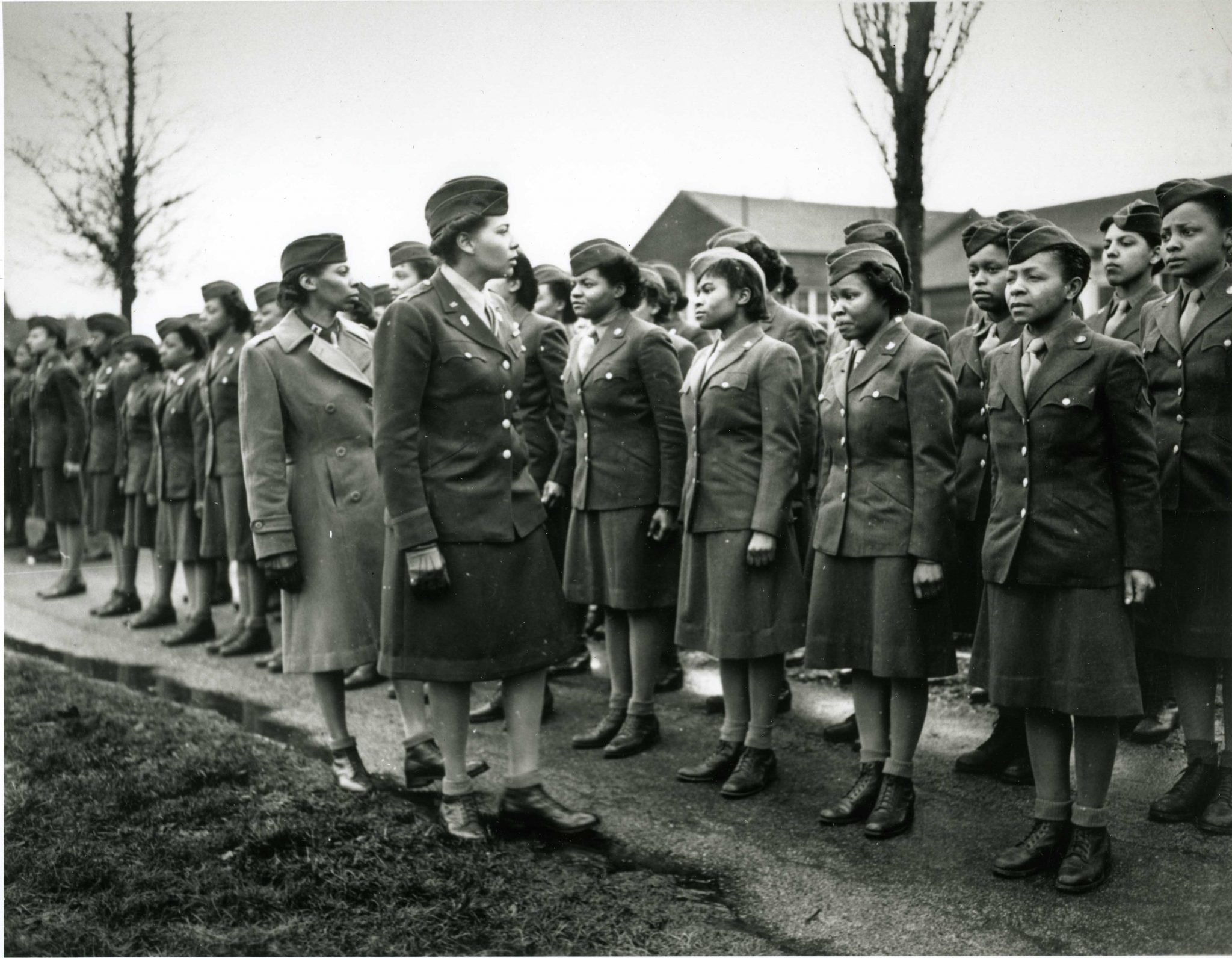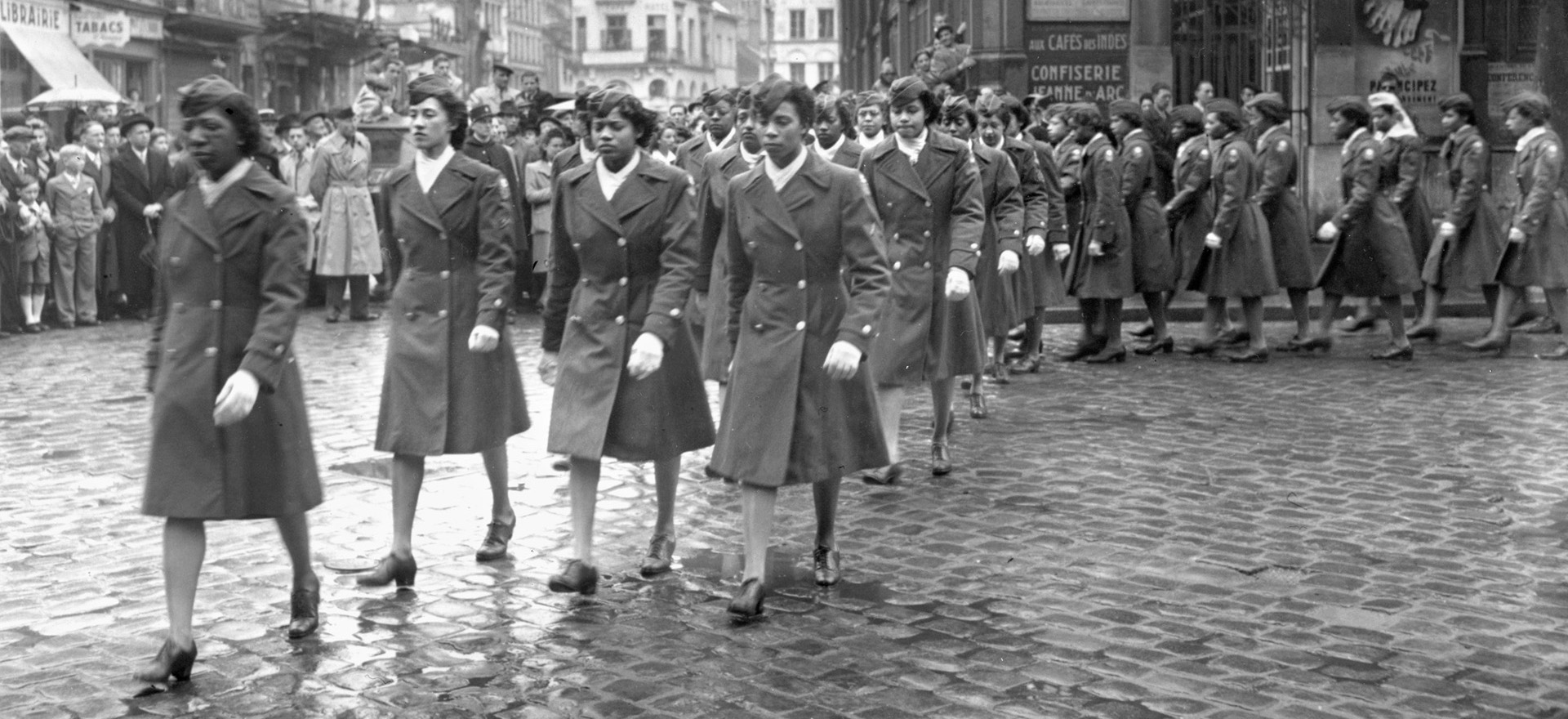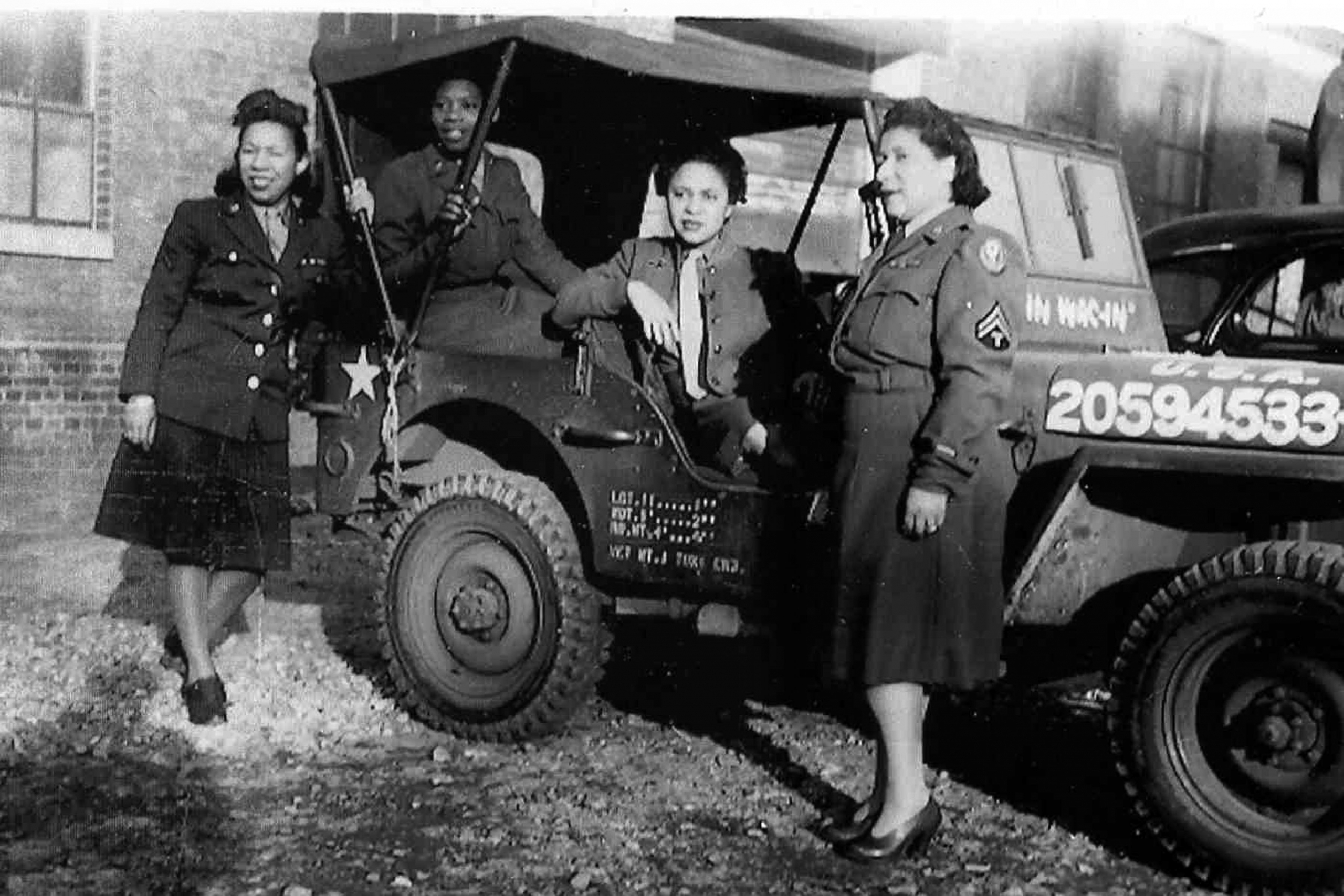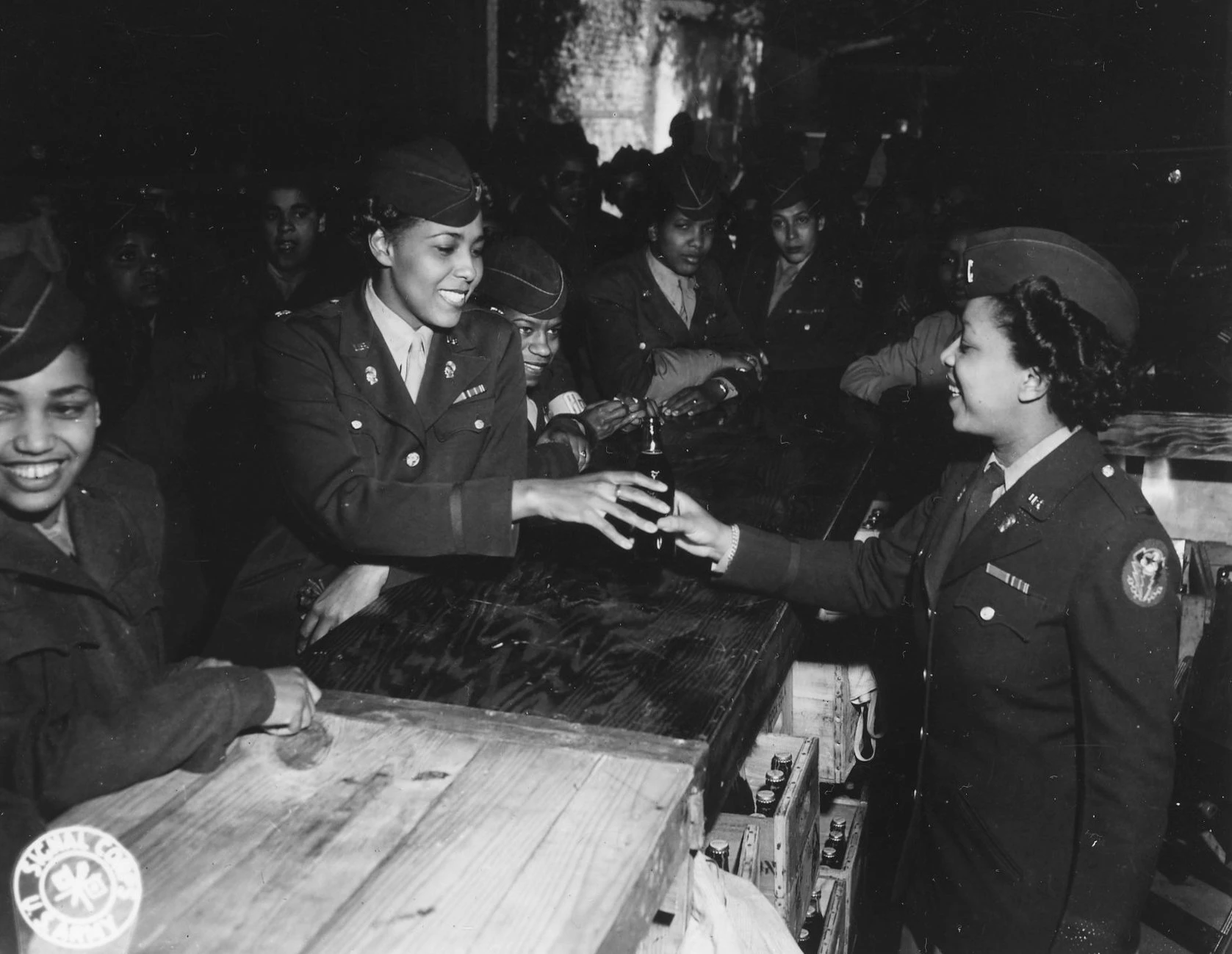
The 6888th Central Postal Directory Battalion stands as one of the most extraordinary and inspiring chapters in the history of the United States’ involvement in World War II.
This all-African American, all-female battalion was not only a symbol of perseverance and resilience but also a groundbreaking example of the contributions made by African American and female soldiers in the war effort.
Tasked with an essential mission, these women were responsible for clearing a massive backlog of mail that had accumulated for U.S. soldiers stationed in Europe. In doing so, they provided a crucial lifeline to soldiers, restoring morale and reminding them that they were not forgotten.
The 6888th’s dedication and efficiency under difficult conditions earned them widespread respect, yet their efforts remained largely unrecognized for many years. Today, the legacy of the 6888th is celebrated as a testament to their courage, commitment, and pioneering role in both African American and women’s military history.
The story of the 6888th begins with the overwhelming challenges faced by the U.S. military during World War II. As the war raged on, millions of U.S. soldiers were deployed overseas to fight in both the European and Pacific theaters.
These soldiers were separated from their families and loved ones, with many relying on letters and packages from home to maintain their spirits and morale.

However, due to logistical challenges and the vast scale of the war, a massive backlog of mail began to accumulate, creating an urgent need for efficient mail sorting and delivery.
In response to this need, the U.S. Army established the 6888th Central Postal Directory Battalion, the first and only all-African American, all-female battalion to serve overseas during the war.
Composed of 855 women, most of whom were young African American women from across the country, the 6888th was tasked with sorting through and delivering the millions of pieces of mail that were desperately needed by the soldiers.
The battalion’s mission was essential to the war effort, as morale among the troops was often dependent on hearing from their families back home.
Despite the critical nature of their mission, the women of the 6888th faced numerous challenges, including racial and gender discrimination. The U.S. military, at the time, was deeply segregated, and African American women faced barriers to advancement and recognition.
Moreover, the conditions under which the 6888th operated were difficult and dangerous, as they worked in makeshift facilities with limited resources, often under harsh weather conditions.
Yet, despite these obstacles, the women of the 6888th worked tirelessly to complete their mission, and their dedication would eventually lead to widespread respect and admiration.

Overcoming Barriers and Discrimination
The 6888th Central Postal Directory Battalion was established in 1942, and after rigorous training, the women were sent to Europe in 1945. Upon arrival, they were tasked with clearing the massive backlog of mail that had accumulated at the Army’s central postal facilities.
At the time, the U.S. Army’s postal services were overwhelmed, and many soldiers had not received letters or packages for months, if not years. The women of the 6888th, working in three shifts around the clock, sorted through millions of pieces of mail, including letters, packages, and parcels, ensuring that each item reached its intended recipient.
While their work was crucial to maintaining the morale of the soldiers, the women of the 6888th faced significant challenges. The military had been segregated for much of the war, and African American women were often relegated to support roles, with little recognition for their contributions.
Furthermore, the women of the battalion faced hostility from both their male counterparts and the broader military hierarchy. The unit’s commanding officers were often dismissive of their work, and they faced constant discrimination from other members of the military.
Despite these barriers, the women of the 6888th remained undeterred. They were determined to complete their mission and ensure that the soldiers received the mail that was vital to their emotional well-being.
The battalion’s work ethic and commitment to excellence allowed them to overcome the obstacles placed before them, and their efforts were soon recognized for their exceptional efficiency and impact on the overall war effort.

A Monumental Achievement in Wartime Logistics
The women of the 6888th worked in extremely challenging conditions, often under stress and with limited resources. They were tasked with sorting mail in a timely manner while dealing with the challenges of poor facilities, inclement weather, and constant pressure.
Despite these obstacles, the 6888th became a model of efficiency, sorting and delivering the mail with remarkable speed. Within six months of their arrival in Europe, the 6888th cleared the massive backlog of mail, delivering over 17 million pieces of mail to soldiers stationed across France and other parts of Europe.
The importance of their work cannot be overstated. The mail they delivered provided soldiers with a vital connection to home, which was often their only source of emotional support during the hardships of war.
Letters from family members, loved ones, and friends were crucial in maintaining the mental health and morale of the troops, helping them to endure the difficult conditions they faced on the front lines.
The women of the 6888th played a key role in restoring a sense of connection and hope for thousands of soldiers, many of whom were fighting far from home in unfamiliar and dangerous conditions.
The battalion’s efficiency was praised by their superiors, and they received accolades for their contribution to the war effort. However, their work was not widely recognized by the public or by the military leadership at the time.
Their efforts were largely overlooked, and they did not receive the credit they deserved for their role in maintaining the morale of the troops and contributing to the overall success of the Allied forces in Europe.
It wasn’t until years later, after the details of the 6888th’s operations were declassified, that their story began to gain the recognition it deserved.
:max_bytes(150000):strip_icc():focal(999x0:1001x2)/six-triple-eight-parade-march-ceremony-paris-122024-d9bd82daf27240d5a0d810180b1fcffa.jpg)
A Long-Overdue Recognition
It wasn’t until the 1990s that the women of the 6888th were finally recognized for their extraordinary contributions to the war effort. The unit’s story remained classified for decades, and many of the women who had served in the battalion were not fully aware of the impact of their work.
As time passed and the history of the war was revisited, the story of the 6888th gained attention, leading to public recognition of their sacrifices and accomplishments.
In 2009, a special ceremony was held in Washington, D.C., to honor the members of the 6888th. These women, who had once faced discrimination and exclusion, were finally given the recognition they deserved.
Their work was celebrated as an important contribution to the success of the U.S. military during World War II, and their legacy became a symbol of the strength, resilience, and determination of African American and female soldiers during a time of immense adversity.
The 6888th Central Postal Directory Battalion is now remembered not only for its critical role in the war effort but also as a pioneering example of African American and women’s contributions to the U.S. military.
The battalion’s story is a testament to the bravery, perseverance, and ingenuity of these remarkable women who, against all odds, played a vital role in helping the Allies achieve victory.

Conclusion
The 6888th Central Postal Directory Battalion was one of the unsung heroes of World War II, and its members demonstrated incredible courage, resourcefulness, and determination.
The battalion’s efforts in sorting and delivering mail to soldiers in Europe were crucial to maintaining morale and ensuring that the troops remained connected to home during the war.
Despite facing racial and gender discrimination, the women of the 6888th persevered and completed their mission with unparalleled efficiency. Their work saved countless lives and played an essential role in the Allied victory.
Today, the legacy of the 6888th is celebrated as a symbol of the contributions of African American and female soldiers to the war effort, reminding us of the often-overlooked heroes who shaped the course of history.
-1749630682-q80.webp)
-1749720819-q80.webp)
-1749571768-q80.webp)
